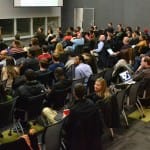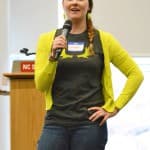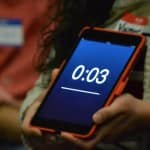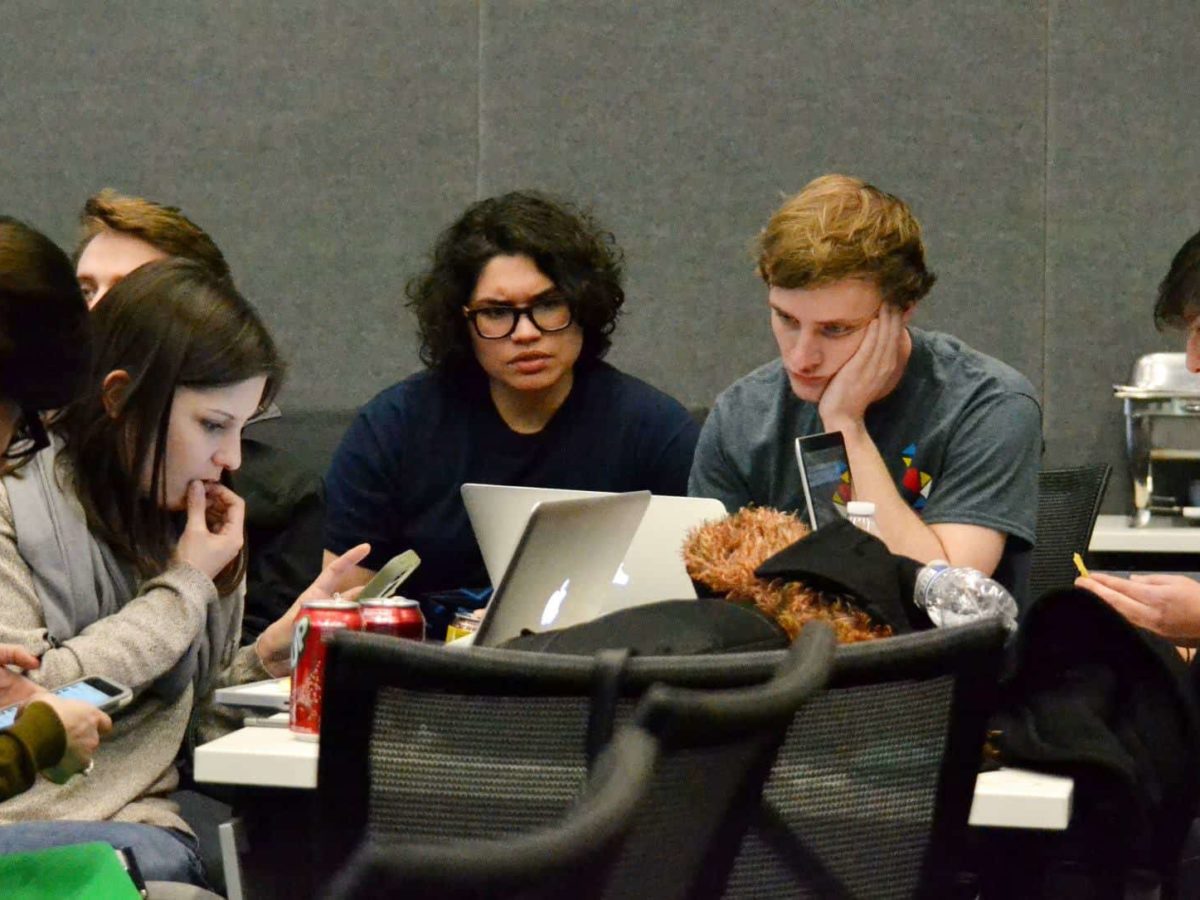

This past weekend, educators, entrepreneurs, developers, and designers gathered in NC State University’s Hunt Library with one common goal: to come up with the next big idea in education.
Friday evening started with the opening pitches to determine the most viable ideas. The participants then created teams based on the ideas they gravitated towards and started working. Saturday, they continued to work all day to prototype their ideas, sometimes even “pivoting” and changing course altogether. Sunday, they had until mid-afternoon to finalize their work and create final pitches for the judges. In one weekend, the teams shared their expertise and passions, with their work culminating in a minimum viable product (MVP) to pitch to those who can help make the visions a reality. More information on Triangle Startup Weekend can be found here.
All above photos thanks to Aaron Averill / Triangle Startup Weekend.
Judging
The teams were judged in four categories:
- Educational impact: Was the team’s idea particularly innovative in the way that it would impact education in years to come?
- Customer validation: Did the team do the legwork to determine how viable their product would be in the eyes of their customers?
- Execution/design: Was the team able to create a functional demo and was the demo user-friendly?
- Business model: Did the team create a realistic business model that has the chance to succeed and be sustainable?
The prize breakdown is as follows:
- All winners will receive a 1 hour consultation with the nonprofit incubator 4.0 Schools and a 2 hour consultation with the entrepreneurial law firm Wyrick Robbins.
- All winners will have the opportunity to be selected for a spot in Groundwork Labs‘ pre-accelerator program, NEXT.
- All winners of the above categories are encouraged to enter into a pool, out of which the tech startup incubator <code>worthy will select a team to work with for an upcoming project.
A top prize was also awarded to one team for the strongest overall pitch. This prize is a guaranteed interview with the investment team for the education startup accelerator Imagine K12, as well as a guaranteed interview with 4.0 Schools’ Education Launch Incubator in New Orleans.
I was honored to be one of five judges. The other judges were Elaine Franklin, the director of the Kenan Fellows Program at NC State University; Holly Fulp, a director at the investment firm William Blair; Keith Sawyer, the Morgan Distinguished Professor in Educational Innovations at UNC-Chapel Hill; and Karl Rectanus, the cofounder and CEO of LearnTrials.
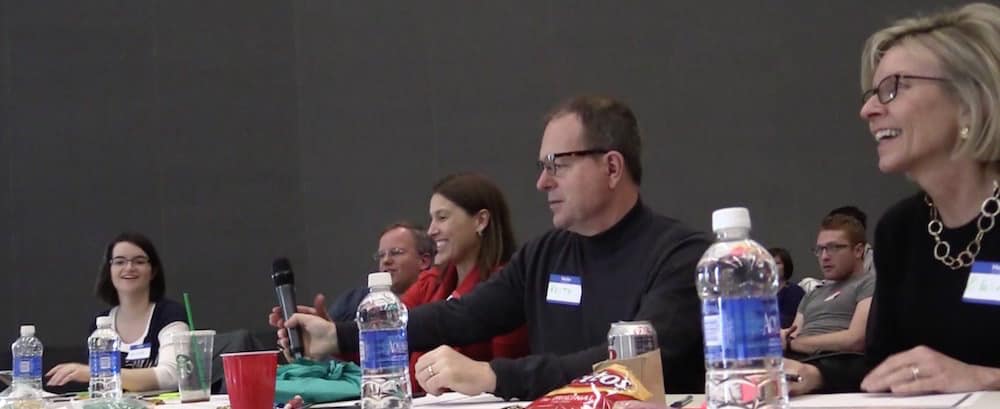

There were 10 teams pitching and each team had five minutes to present the problem, solution, and prototype to us. This was followed by a three minute Q&A for the judges to allow the teams to elaborate or clarify points.
The time flew by as team after team lined up to give their pitches. Some teams worked with an event sponsor, Betaversity, to create 3D models of their ideas. Others created prototypes of mobile apps or beta versions of websites.
It was inspiring to see the range of ideas offering solutions to problems, like low student engagement in classrooms, hard-to-find digital resources for teachers, parent-teacher communications, over-worked and under-paid teachers, bullying, long bus rides, and fundraising for education initiatives.
After hearing all the pitches, the judges were whisked away to the deliberation chambers while the crowd voted for their favorites. Watch the video below to watch the winner be revealed:
All of the judges had unique backgrounds, which made it interesting to hear the different perspectives on the pitches. In the end, we agreed on the following winners:
Educational impact
My Support Village is an app consisting of a dashboard to consolidate communication between parents, teachers, and support staff of students with special needs. Districts would subscribe to this product, allowing any stakeholder in the student’s life a centralized hub to track the student’s progress across many facets. This would allow for constant communication for all members of the student’s support network.
We had a hard time determining the winner for this category, so we wanted to present a team as a runner-up. BUZZ Drivers is an initiative to create an engaging and safe place for students on school buses. It would cut down on bullying on buses by adding trained leaders to ride the routes and create an extension to the classroom by providing built-in tablets to the seat-backs.
Customer validation
Village is a platform that allows for proactive parent-teacher communications. A teacher would schedule automatic delivery of content or reminders to parents through email or SMS. The team created an impressive MVP that included texts being sent out to demo participants in the audience during their pitch.
Execution/design
EduLaunch is a crowdfunding website focusing on education. Impressively, they built their platform over the course of the weekend in time to start raising money for a handful of seed projects and even fully fund several. One thing that is unique about their platform is that it allows one to contribute with time or resources, rather than just financially.
Business model
Math!nFusion is a group tutoring website. Students who sign up for the service would take a diagnostic placement test to determine which group they will join. The service provides professional development for teachers who sign up to be tutors, effectively giving teachers paid opportunities for professional development. It would be initially funded by grants and eventually by fees from parents.
Math!nFusion also won the overall best prize.
We wish all participants the best of luck as they pursue their innovative ideas and look for more ways to solve problems in education.
Editor’s Note: EducationNC was a sponsor for the weekend, providing scholarships for three educators to attend the event.


